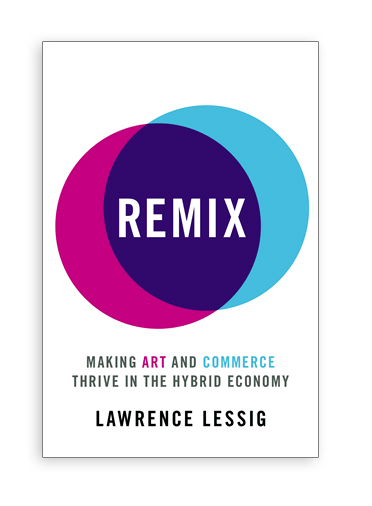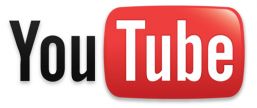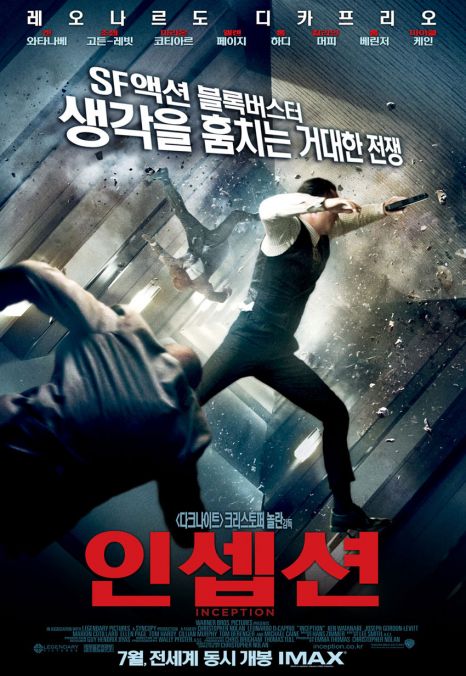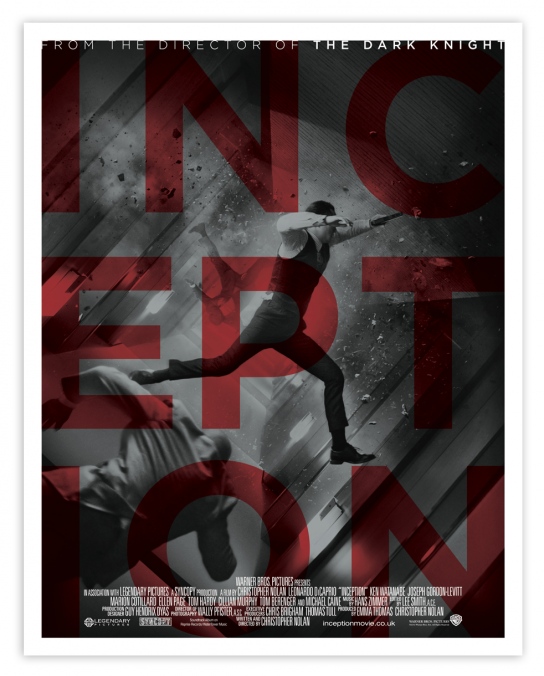Remix Culture
When it comes to "remixing" old work be it video, music or any other form of culture/art there are bound to be restrictions and confusion about what is allowed, legal and fair. Created especially for the web is the "code of best practice for online video" which gives guidelines on the fair use of copyrighted material to be presented online.
A similar subject to the Open Source, Copyleft topics I've also researched HERE, it seems there are limitations to what can be "remixed" but also vast potential as long as users stay within the fair use of material.

Lawrence Lessig, one of the leading figures in the stance for fair use of copyright material in the online medium as Creative Commons co-founder, touches on an example in his book "Remix" that highlights the original issue created by the lack of updating in Copyright laws in consideration of growth of web 2.0; A young mother recorded her 18-month old child dancing to a Prince song playing in the background in a 29 second clip. Back in 2007 when YouTube, in particular, was continuing its rapid growth, Universal Music Group deemed it necessary to take down the video as in their eyes it crossed the out-of-touch lines of copyright. Fortunately, since then the introduction of the code of best practice for online video has created a clear outline on the fair use of copyright material which now has us in 2011 with an abundance of mash-ups, remixed songs, videos etc.
The ability to take someones work and, not necessarily better it, but build on top of it or even deconstruct and reassemble it has taken the internet by storm with some content even growing in size that it creates the meme effect where something can end up being remixed and reworked hundreds and even thousands of times.

It's hard to imagine a time before YouTube was part of the web. Now it acts as one giant hub for remixed videos and mash-ups some which have gone on to collect view counts within the millions and re-remixes in the hundreds.
A famous scene from the German film "Der Unterang" (The Downfall) has gone on to be remixed numerous times, normally to relate with a global event/news story of the time. Being a German language film the scene has had altered English subtitles added to the copyrighted material and uploaded to YouTube. Often producing comical effects due to the unlikely nature and link between the video and subtitle translation.
Proving the inspiration and source for the video remixes that you can drown in on YouTube come from wildly varying and random start points is the hugely popular Keyboard Cat. Essentially a video of a cat being puppeted into playing a keyboard has become a global phenomenon with remix videos even using the original as tools for political satire.
[Re]Cuts is a video piece created by Eduardo Navas intended to act as a remix of personally collected images, sounds and text. What's different about this is, compared to the YouTube parodies and re-cuts, he's sourced his own material before chopping it up to create something new and unique from several different original pieces. Similar to how we will be working whilst looking at the collaborative filmmaking side e.g. shooting and editing our own material.
One musician pushing the envelope in terms of fair use and copyright laws is Pittsburgh based, Girl Talk. Essentially their album is crafted through using snippets of over 350 other songs. The album is then made downloadable for free off their own website. Ironically, Girl Talk can still make money from touring and performing, therefore aren't they making money off other people material without crediting them fairly (or in monetary terms).
Remix meets Guerilla Art group CutUp Collective have made a name for themselves through the trademark of deconstructing, defacing and reassembling Billboard advertisements across London. From their early days they've now gone onto hold shows of their work in London, New York City and Barcelona.
I've always been interested in street art but mainly graffiti although I am really interested in the originality of CutUp Collective and their work.
Flickr link to more of their recent work across the city.
Web Made Movies is an innovation lab that brings filmmakers and developers together to rethink how we create and watch movies online. From the project spawned the javascript Popcorn; enabling developers and designers to seamlessly tie in video content to their website and rethink how user interact with video online.


The first image here is the Japanese poster for the 2010 movie Inception. In the second image I've broken down a PDF of the original poster and used the elements to "remix" the poster. When looking at remix culture a lot of focus appeared to be on the moving, motion, animation, live-action side yet very little attention was paid to the possibility of "remixing" static material and design (besides cut up collective's work).
Breaking the original PDF down was mainly done through Adobe Acrobat to extract the main image and credits at the bottom of the poster. From there, I reassembled the piece and stylised the image and logo to create my own interpretation of the piece.
I like the idea behind remixing static pieces of work and could look further into the concept with my final project. Perhaps producing a series of movie posters in my own remixed style.